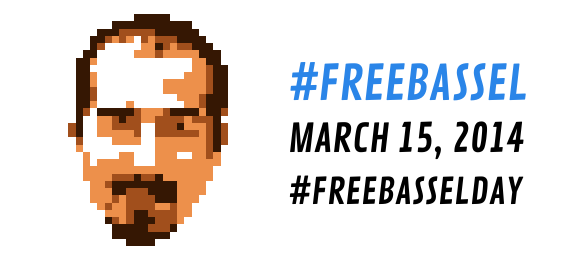Getty Images allows free embed of 35 million photographs
samedi 8 mars 2014 à 00:14
Kristina Alexanderson / CC BY-NC-SA
Getty Images recently announced that it will allow free noncommercial embedding of 35 million of the images in its stock photography database. This is a good step toward better supporting a variety of users. Getty is clearly seeing its images appear across the web anyway, so it’s decided to go down the embed road, similar to how other content providers like YouTube handle the media they host. By requiring embedding, Getty will be able to track where its photos are being used online, and reserves the right to display advertisements. The announcement demonstrates a general understanding that Getty needs to meet users halfway in providing content in ways that is affordable, useable, and aligned with how people wish to share online today. At the same time, users may run into roadblocks in using Getty content, and openly-licensed resources could provide a straightforward alternative.
The Getty Images terms of use say that users can “only use embedded Getty Images Content for editorial purposes (meaning relating to events that are newsworthy or of public interest)”. Creative Commons-licensed images can be used for any purpose, by anyone, anywhere around the world, as long as the user follows the terms of the license. But no CC license dictates that a piece of licensed content may only be used for a specific purpose–editorial or otherwise.
The Getty terms also state that images “may not be used … for any commercial purpose (for example, in advertising, promotions or merchandising) or to suggest endorsement or sponsorship…”. The British Journal of Photography, in an interview with Getty Images representative Craig Peters, clarifies Getty’s interpretation of the boundaries of noncommercial use.
Blogs that draw revenues from Google Ads will still be able to use the Getty Images embed player at no cost. “We would not consider this commercial use,” says Peters.
Creative Commons has maintained a static definition of noncommercial use in its licenses over the years (which has earned its share of criticism). In license version 4.0 “NonCommercial means not primarily intended for or directed towards commercial advantage or monetary compensation.”
Another difference between the Getty Images embed service and Creative Commons-licensed images is that Getty would reserve the right to revoke its embedded photographs at any time. Its terms of use state that the “availability may change without notice. Getty Images reserves the right in its sole discretion to remove Getty Images Content from the Embedded Viewer. Upon request, you agree to take prompt action to stop using the Embedded Viewer and/or Getty Images Content.” So unlike even the most restrictive Creative Commons license (which permits verbatim noncommercial copying with attribution), Getty Images requires an HTML embed which it solely controls. When images are licensed under Creative Commons licenses, downstream users are granted more permissive rights. As stated in our Frequently Asked Questions:
The CC licenses are irrevocable. This means that once you receive material under a CC license, you will always have the right to use it under those license terms, even if the licensor changes his or her mind and stops distributing under the CC license terms.
Finally, the Getty terms prohibit uses “outside of the context of the Embedded Viewer”, which means that you can’t use the Getty images in remixes, videos, or really anywhere that doesn’t use embeds. On the other hand, CC-licensed images permit reuse in any medium. The licenses grant users authorization to exercise their rights under the license “in all media and formats … and to make technical modifications necessary to do so.”
It’s good that Getty Images is providing free online access to millions of images. But the advantages of CC-licensed photos is clear: users can’t have the content pulled out from underneath them, the images can be used for any reason in any format, and in many cases images are licensed for broad reuse and modification. And remember, there’s a huge trove of Creative Commons-licensed images out there too (not to mention millions of photographs in the public domain for use without any restrictions whatsoever!). Flickr now contains over 300 million CC-licensed photos. Wikimedia Commons hosts over 20 million multimedia files (a large proportion which are openly-licensed photographs being used on Wikipedia). Or even check out Google Images or Bing to easily discover CC-licensed images.


